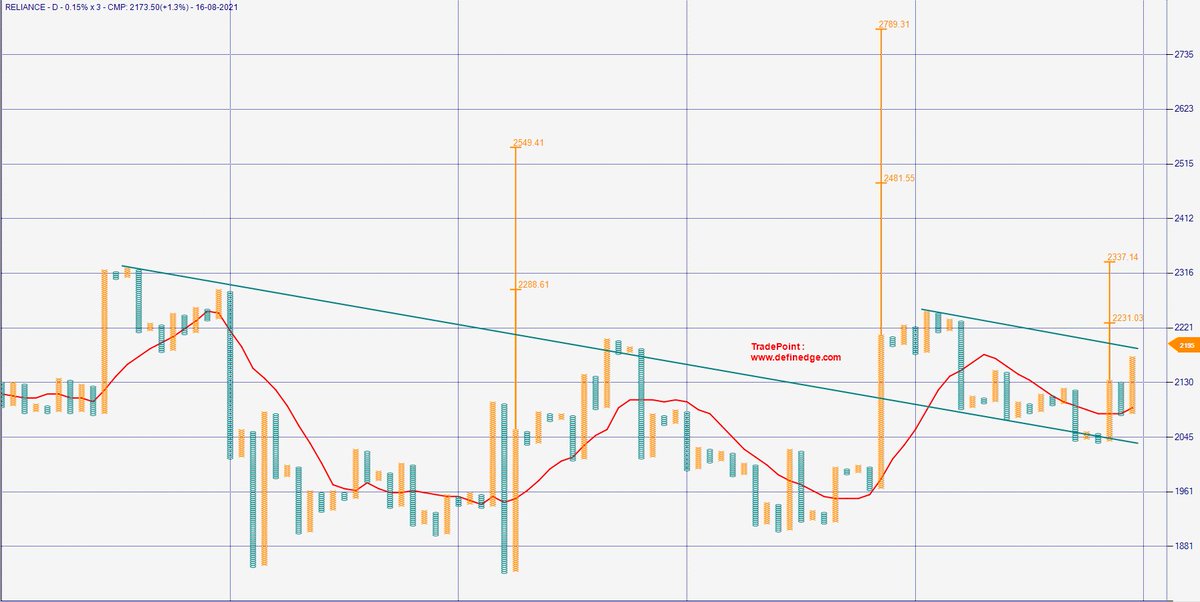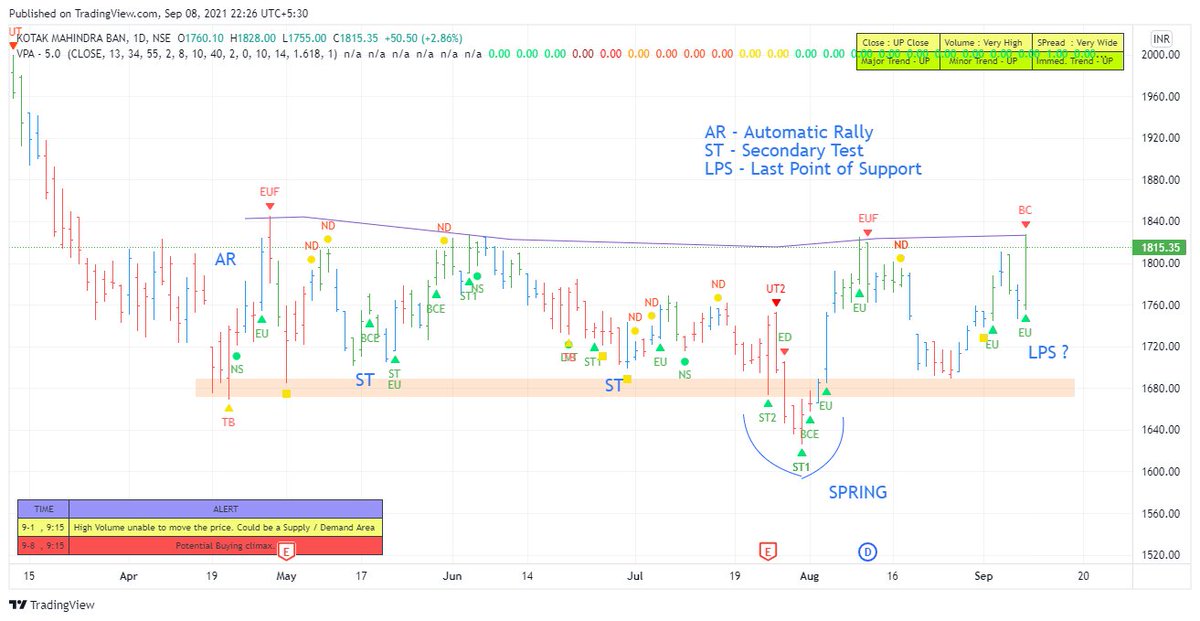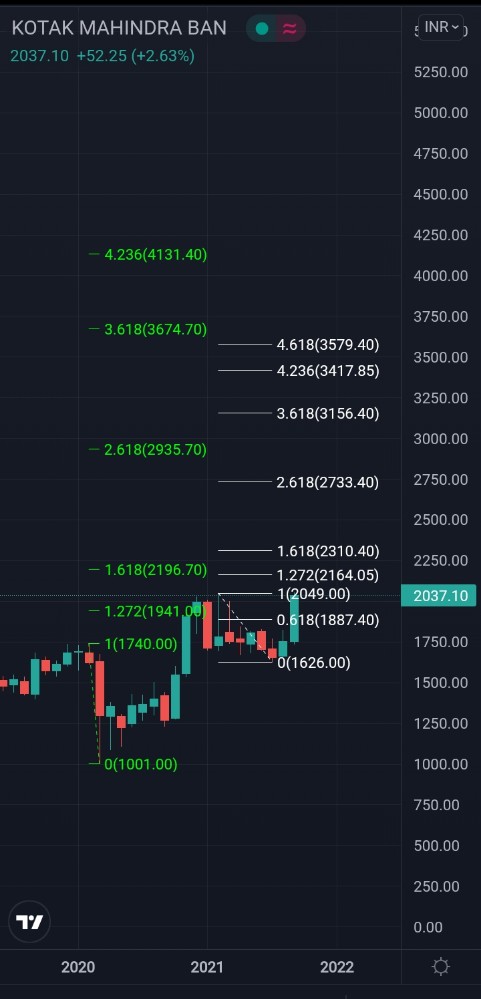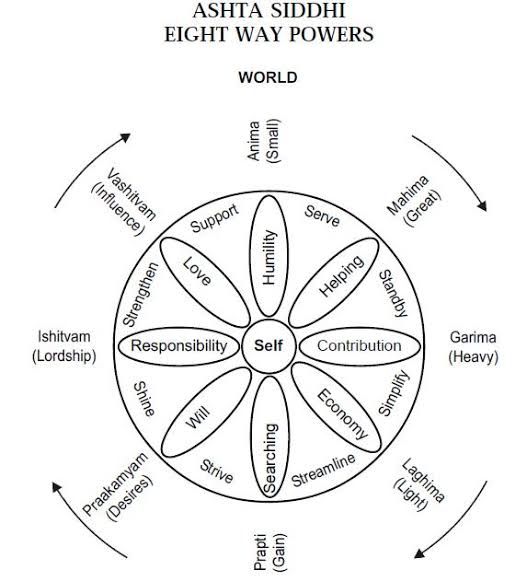More from Sunil Dhawan🚩 🇮🇳
Sir @Prakashplutus since cement is used, shall we painting the house now.
#BergePaint .15% x 3 cmp 864
#kansainer .25% x 3 cmp 618
@Definedge https://t.co/QtFMafOOm7

#BergePaint .15% x 3 cmp 864
#kansainer .25% x 3 cmp 618
@Definedge https://t.co/QtFMafOOm7

even I was able to catch all cement for private group...everyone enjoyed
— Sunil Dhawan\U0001f6a9 \U0001f1ee\U0001f1f3 (@SunilDhawan13) July 20, 2021
all future levels#ACC #ambujacem #ultracemco pic.twitter.com/4Vjsu6ObSy
#IRCTC cmp 2400
patience is virtue
no exit. though its slightly overbought, any retracement could be chance
2700 level brings more strength
patience is virtue
no exit. though its slightly overbought, any retracement could be chance
2700 level brings more strength
#IRCTC 1% x 3 cmp 1759
— Sunil Dhawan\U0001f6a9 \U0001f1ee\U0001f1f3 (@SunilDhawan13) February 28, 2021
chart to level mapping@Definedge https://t.co/nP50vq4PJb pic.twitter.com/tzUq1ICIMb
More from Kotakbank
You May Also Like
1/“What would need to be true for you to….X”
Why is this the most powerful question you can ask when attempting to reach an agreement with another human being or organization?
A thread, co-written by @deanmbrody:
2/ First, “X” could be lots of things. Examples: What would need to be true for you to
- “Feel it's in our best interest for me to be CMO"
- “Feel that we’re in a good place as a company”
- “Feel that we’re on the same page”
- “Feel that we both got what we wanted from this deal
3/ Normally, we aren’t that direct. Example from startup/VC land:
Founders leave VC meetings thinking that every VC will invest, but they rarely do.
Worse over, the founders don’t know what they need to do in order to be fundable.
4/ So why should you ask the magic Q?
To get clarity.
You want to know where you stand, and what it takes to get what you want in a way that also gets them what they want.
It also holds them (mentally) accountable once the thing they need becomes true.
5/ Staying in the context of soliciting investors, the question is “what would need to be true for you to want to invest (or partner with us on this journey, etc)?”
Multiple responses to this question are likely to deliver a positive result.
Why is this the most powerful question you can ask when attempting to reach an agreement with another human being or organization?
A thread, co-written by @deanmbrody:
Next level tactic when closing a sale, candidate, or investment:
— Erik Torenberg (@eriktorenberg) February 27, 2018
Ask: \u201cWhat needs to be true for you to be all in?\u201d
You'll usually get an explicit answer that you might not get otherwise. It also holds them accountable once the thing they need becomes true.
2/ First, “X” could be lots of things. Examples: What would need to be true for you to
- “Feel it's in our best interest for me to be CMO"
- “Feel that we’re in a good place as a company”
- “Feel that we’re on the same page”
- “Feel that we both got what we wanted from this deal
3/ Normally, we aren’t that direct. Example from startup/VC land:
Founders leave VC meetings thinking that every VC will invest, but they rarely do.
Worse over, the founders don’t know what they need to do in order to be fundable.
4/ So why should you ask the magic Q?
To get clarity.
You want to know where you stand, and what it takes to get what you want in a way that also gets them what they want.
It also holds them (mentally) accountable once the thing they need becomes true.
5/ Staying in the context of soliciting investors, the question is “what would need to be true for you to want to invest (or partner with us on this journey, etc)?”
Multiple responses to this question are likely to deliver a positive result.






















